#conflict
Explore tagged Tumblr posts
Text
Faith or works?

“You can’t earn your way into heaven.”
On my way into the Catholic Church (I’m a convert), this was one of the objections my Protestant friends raised.
It’s grounded in the classic (misguided) idea that for Catholics your relationship with God is all about doing things (works of mercy, certain prayers, etc.) with little or no actual personal connection or faith.
It’s usually followed up by an assertion that salvation is a gift from God (that part is true).
The point being that (as they saw it) the supposed hyperfocus on “works” in the Catholic Church was unnecessary at best. At worst, it was a distraction or even an obstacle to faith.
Were my friends right? That there’s a conflict between faith and works, and in that conflict the Catholic Church has it wrong?
Actually, the Catholic Church isn’t focused on works to the detriment of faith. More importantly, there is no conflict between faith and works.
Sadly, this is one of the classic ways that Christians mess things up. And end up turning Christianity into something it was never meant to be. Here’s what I mean:
With the best of intentions, people try to make the Faith simpler and easier – by taking one positive good (like faith) and putting it above all other positive goods. With the idea that if they do this one thing well, then everything else will work itself out.
It’s a very understandable impulse, because the Faith is complex and nuanced (just like life, just like people). But in the long run, hyper-focusing on one positive good almost always ends up putting it in conflict with other positive goods (like works).
BTW, this same sort of thinking is the source of the (very not Catholic) manufactured conflict between faith and reason.
Back to faith and works. Against the “faith alone” perspective, St. James pushes back hard in today’s first reading when he says, “faith without works is dead.”
If that’s true, then what is the relationship of faith and works?
Pope Leo the Great put it simply, “while faith provides the basis for the works, the strength of faith comes out only in works.”
Faith alone is not enough.
Not because you or I have to earn God’s love (hint – we can’t earn it, it’s freely given by God). But because works are the unavoidable result of a living faith. Here’s what I mean.
My mother owns some woods that have a small creek running through them. One day, I decided to walk up the creek to find its source. I eventually found the place where it comes up out of the ground.
I put my foot over the spot, and for a moment the water stopped flowing. With no new water coming in, I could see the bottom of the creek start to emerge as the water drained away. And then it started to fill back up.
I looked back and saw water welling up around my foot and starting to flow again. The living spring that fed the creek was more than a match for my feeble attempt to disrupt it.
That is the relationship between faith and works that Leo the Great is talking about.
That is, if you have a living faith, works will well up out of you. Like me trying to block the flow of the spring, you will not be able to prevent yourself from living out your faith through corporal and spiritual works of mercy.
Just as the water in the creek points to the living spring, our works point to the living faith in us.
It’s not faith or works. It’s faith and works.
May God bless you richly with both.
Today’s Readings
15 notes
·
View notes
Text
Stopping yourself mid-conflict to change your perspective is allowed! It’s okay and normal to be mid argument with someone and realize you disagree with your own stance. Often I find myself and others caught up in trying to win the argument (not the point of arguments!) or too embarrassed to back down and be wrong. I promise there is so much more pride in going “Stop! I’m wrong. I hear you and I see how I wasn’t in the right and I want to amend my view” than digging your heels in.
#also how to argue productively is a whole post#suggestions#suggestion blog#recovery#positivity#self love#mental health#self care#ed recovery#love#relationships#shame#arguments#growth#conflict#ignorance#learning#self improvement#healing#mental illness
7K notes
·
View notes
Text


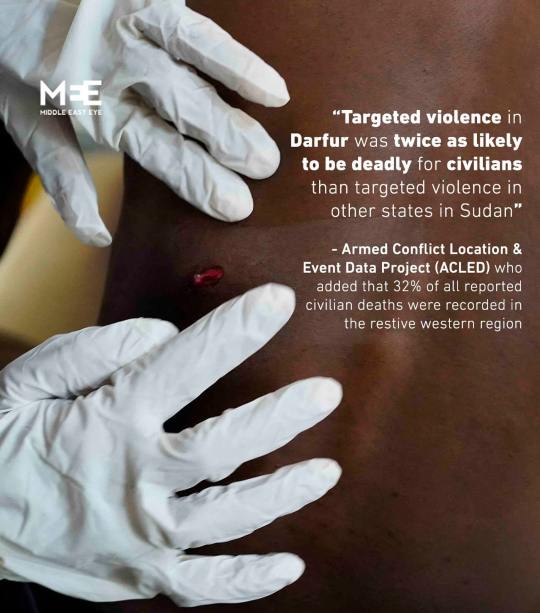




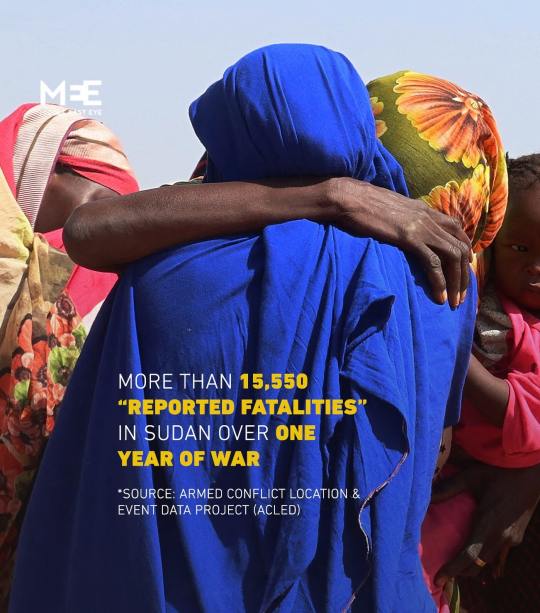
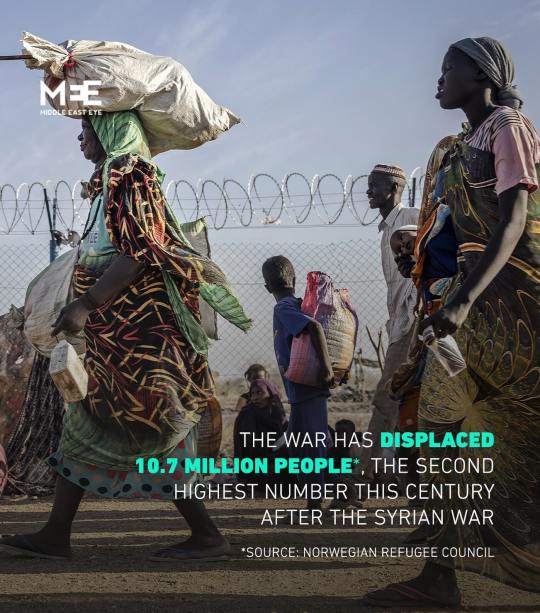
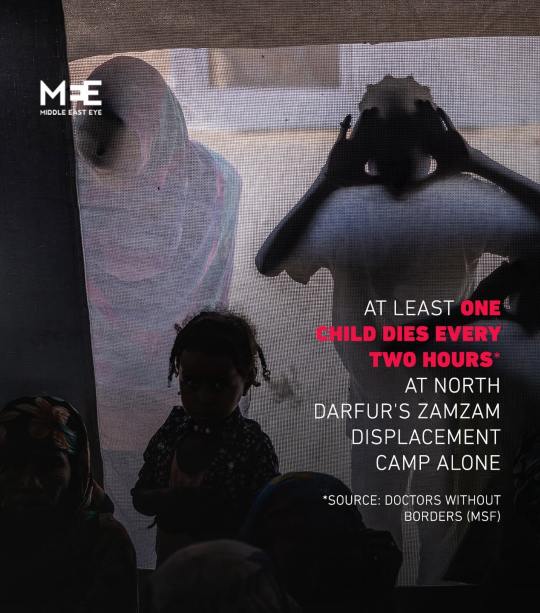
#sudan#civil war#conflict#rapid support forces#armed forces#humanitarian crisis#death toll#refugees#aid#humanitarian assistance
5K notes
·
View notes
Photo


Layan Albaz is one of thousands of Palestinian children who had lost limbs in Israeli air strikes since October 7—and one of the very few evacuated to the U.S. for medical care.
The new Atavist story, COMING TO AMERICA, is now live, and also available in Arabic:
The average U.S. public school has about 550 students. Imagine eight or nine schools in an area roughly the size of Philadelphia where every kid is missing at least one limb. Imagine also that their amputations happened alongside a torrent of other tragedies: the loss of family members, friends, neighbors, schools, houses.
Now imagine that the only hope to reclaim some semblance of physical normalcy required those children to leave home. Gaza’s sole manufacturer of prosthetics and its affiliated rehabilitation center were destroyed in an air strike months ago; as a result, many families of children who have lost limbs are trying to evacuate them so they can receive medical care abroad. Social media is brimming with their desperate pleas, and only a few get what amounts to a lucky ticket for the mortally unlucky: Countries willing to take pediatric amputees from Gaza are doing so in relatively small numbers.
The kids who do find a way out board planes for distant places. In Layan’s case, that place was more than 6,000 miles away from everything and everyone she knew.
#gaza#palestine#israel#war#conflict#chicago#middle east#longreads#true story#children#human rights#humanitarian crisis#healthcare#amputees
3K notes
·
View notes
Text

Death as General Rides a Horse on a Battlefield by Edgar Bundy
#edgar bundy#art#death#general#battlefield#battle#skeleton#phantom#ghost#skull#gloomy#haunting#haunted#europe#european#horse#raven#ravens#cape#hat#soldiers#military#war#conflict
430 notes
·
View notes
Text
"I think Homer outwits most writers who have written on the War [fantasy archetype], by not taking sides.
The Trojan war is not and you cannot make it be the War of Good vs. Evil. It’s just a war, a wasteful, useless, needless, stupid, protracted, cruel mess full of individual acts of courage, cowardice, nobility, betrayal, limb-hacking-off, and disembowelment. Homer was a Greek and might have been partial to the Greek side, but he had a sense of justice or balance that seems characteristically Greek — maybe his people learned a good deal of it from him? His impartiality is far from dispassionate; the story is a torrent of passionate actions, generous, despicable, magnificent, trivial. But it is unprejudiced. It isn’t Satan vs. Angels. It isn’t Holy Warriors vs. Infidels. It isn’t hobbits vs. orcs. It’s just people vs. people.
Of course you can take sides, and almost everybody does. I try not to, but it’s no use; I just like the Trojans better than the Greeks. But Homer truly doesn’t take sides, and so he permits the story to be tragic. By tragedy, mind and soul are grieved, enlarged, and exalted.
Whether war itself can rise to tragedy, can enlarge and exalt the soul, I leave to those who have been more immediately part of a war than I have. I think some believe that it can, and might say that the opportunity for heroism and tragedy justifies war. I don’t know; all I know is what a poem about a war can do. In any case, war is something human beings do and show no signs of stopping doing, and so it may be less important to condemn it or to justify it than to be able to perceive it as tragic.
But once you take sides, you have lost that ability.
Is it our dominant religion that makes us want war to be between the good guys and the bad guys?
In the War of Good vs. Evil there can be divine or supernal justice but not human tragedy. It is by definition, technically, comic (as in The Divine Comedy): the good guys win. It has a happy ending. If the bad guys beat the good guys, unhappy ending, that’s mere reversal, flip side of the same coin. The author is not impartial. Dystopia is not tragedy.
Milton, a Christian, had to take sides, and couldn’t avoid comedy. He could approach tragedy only by making Evil, in the person of Lucifer, grand, heroic, and even sympathetic — which is faking it. He faked it very well.
Maybe it’s not only Christian habits of thought but the difficulty we all have in growing up that makes us insist justice must favor the good.
After all, 'Let the best man win' doesn’t mean the good man will win. It means, 'This will be a fair fight, no prejudice, no interference — so the best fighter will win it.' If the treacherous bully fairly defeats the nice guy, the treacherous bully is declared champion. This is justice. But it’s the kind of justice that children can’t bear. They rage against it. It’s not fair!
But if children never learn to bear it, they can’t go on to learn that a victory or a defeat in battle, or in any competition other than a purely moral one (whatever that might be), has nothing to do with who is morally better.
Might does not make right — right?
Therefore right does not make might. Right?
But we want it to. 'My strength is as the strength of ten because my heart is pure.'
If we insist that in the real world the ultimate victor must be the good guy, we’ve sacrificed right to might. (That’s what History does after most wars, when it applauds the victors for their superior virtue as well as their superior firepower.) If we falsify the terms of the competition, handicapping it, so that the good guys may lose the battle but always win the war, we’ve left the real world, we’re in fantasy land — wishful thinking country.
Homer didn’t do wishful thinking.
Homer’s Achilles is a disobedient officer, a sulky, self-pitying teenager who gets his nose out of joint and won’t fight for his own side. A sign that Achilles might grow up someday, if given time, is his love for his friend Patroclus. But his big snit is over a girl he was given to rape but has to give back to his superior officer, which to me rather dims the love story. To me Achilles is not a good guy. But he is a good warrior, a great fighter — even better than the Trojan prime warrior, Hector. Hector is a good guy on any terms — kind husband, kind father, responsible on all counts — a mensch. But right does not make might. Achilles kills him.
The famous Helen plays a quite small part in The Iliad. Because I know that she’ll come through the whole war with not a hair in her blond blow-dry out of place, I see her as opportunistic, immoral, emotionally about as deep as a cookie sheet. But if I believed that the good guys win, that the reward goes to the virtuous, I’d have to see her as an innocent beauty wronged by Fate and saved by the Greeks.
And people do see her that way. Homer lets us each make our own Helen; and so she is immortal.
I don’t know if such nobility of mind (in the sense of the impartial 'noble' gases) is possible to a modern writer of fantasy. Since we have worked so hard to separate History from Fiction, our fantasies are dire warnings, or mere nightmares, or else they are wish fulfillments."
- Ursula K. Le Guin, from No Time to Spare, 2013.
#ursula k. le guin#homer#quote#quotations#the iliad#trojan war#storytelling#fantasy#fiction writing#war#conflict#tragedy#john milton#paradise lost#greek mythology
3K notes
·
View notes
Text
🇸🇾🇵🇸 🚨
THOUSANDS OF SYRIANS MARCH IN SOLIDARITY WITH PALESTINIANS FACING GENOCIDE IN GAZA
📹 Scenes from Syria where thousands of local residents marched in solidarity with Palestinians under siege and facing genocide at the hands of the Zionist occupation army.
#source
@WorkerSolidarityNews
#syria#syria news#syrian news#gaza#palestine#palestinians#gaza news#gaza war#genocide in gaza#palestine news#syrian politics#middle east#war#israel palestine conflict#arab israeli conflict#israel#israeli occupation#occupation#genocide#conflict#politics#news#geopolitics#world news#global news#international news#breaking news#current events#pro palestine protest#palestine protest
816 notes
·
View notes
Text
i am begging you, writers: let your characters make hard decisions.
a great many of us feel compelled to force our characters into action, but it is so much more interesting if your characters take action of their own volition and potentially against their best interests (and maybe they don't know that! or maybe they do and they do it anyway!). your work as a writer is not necessarily to shove them into action but to lure them away from inaction. the members of the fellowship don't have to accompany frodo. all of them can turn around and go back at any point without any personal consequence. but they go anyway.
when your characters are forced into action, it doesn't really lend the story meaning. but when there's always an option to turn around and go home and crawl into a comfy cozy bed, and they choose the harder thing? the worse thing? the thing that's bad for them, that may even get them killed? that speaks to who they are and allows their own choices to change them.
417 notes
·
View notes
Text


Grand Theft Auto: San Andreas (2004) developed by Rockstar North and published by Rockstar Games
#gta san andreas#carl johnson#conflict#cop#cops#police#games#video game#ps2#playstation 2#my gif#gifs
334 notes
·
View notes
Quote
Cold water added to cold water, makes no disturbance. Error added to error causes no jar. Selfishness and selfishness walk together in peace, because they are agreed; but when fire is brought in direct contact with water, when flaming truth grapples with some loathsome error, when the clear and sweet current of benevolence sets against the foul and bitter stream of selfishness, when mercy and humanity confront iron-hearted cruelty, and ignorant brutality, there cannot fail to be agitation and excitement.
Frederick Douglass, "The American Apocalypse (1861)"
609 notes
·
View notes
Text
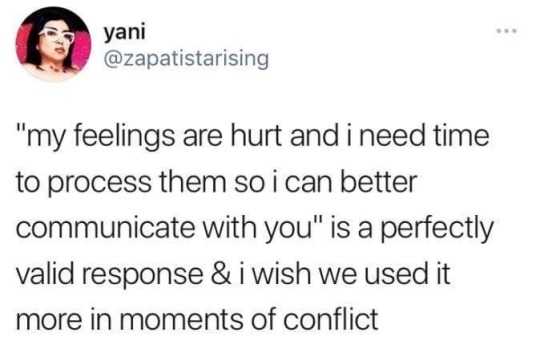
#conflict#my feelings#being honest#boundaries#healthy boundaries#vulnerable#words#growth#healing#hurt#feelings#i need time
2K notes
·
View notes
Text

"Harvest mice attacked by snake." Brehm's Life of animals. 1895.
Internet Archive
#animals#snake#snakes#nature illustration#processed image#mouse#mice#conflict#violence in nature#nemfrog#1895#1890s
255 notes
·
View notes
Text
Writing Worksheets: "Move" Your Character

Worksheets & Templates Character Change; Adding Action; Conflict
HOW CHARACTERS CHANGE
Write internal & external changes your character undergoes...
During your character's beginning state:
When your character reacts to an impetus:
When they enter a new world:
When the "beginning state" is proved to be unsound:
When they undergo a paradigm shift:
When they experience loss/failure:
When your character discovers what they truly need:
End state:
ADDING ACTION
The problem your character is trying to solve:
External solution:
Break the solution down into smaller tasks:
What need/motivation is behind this task? How does the need/motivation turn into action?
What is the reaction to this action?
What new needs/problems does the reaction create?
CREATE CONFLICT
Who or what is opposing your character?
What are they at odds?
Who or what else is involved?
How does your character react internally? Externally?
What governs your character's reactions?
Is your character motivated to resolve this conflict?
How long does the conflict last?
How and when should the conflict be resolved?
How does the character develop through this conflict?
How do the other (opposing) characters develop through this conflict?
How does the story develop through this conflict?
Worsen/Resolve a Conflict
What is the conflict?
Do you need to make it worse/resolve it?
Brainstorm some ways to worsen/resolve it through...
Conversation:
Questions:
Violence:
Empathy
Threats:
Requests:
Supplication:
Persuasion:
Complaints:
Honesty:
Apologies:
Dishonesty:
Punishment:
Incentives:
Outside Help:
Death:
Advice:
Inattention:
Inaction:
Information:
Orders:
Error:
Haste:
Discovery:
Departure:
Other:
Source ⚜ More: Conflict ⚜ Character's Journey ⚜ Worksheets Writing References: Worldbuilding ⚜ Plot ⚜ Character
#writing reference#character development#writeblr#dark academia#spilled ink#creative writing#fiction#conflict#literature#writing prompt#character building#character inspiration#writing advice#writing tips#writers on tumblr#story#novel#light academia#writing inspiration#jose ferraz de almeida junior#writing resources
199 notes
·
View notes
Text

The mass funeral of Palestinians shot and killed by Israeli occupation forces in Balata refugee camp in the city of Nablus, earlier today.
#palestinians#lebanese#palestine#resistance#free gaza#lebanon#conflict#all eyes on jabalia#gaza genocide#free palestine#gaza relief#help gaza#gaza strip#gaza funds#gaza under attack#gazaunderattack#i stand with gaza#save gaza#gaza
130 notes
·
View notes


